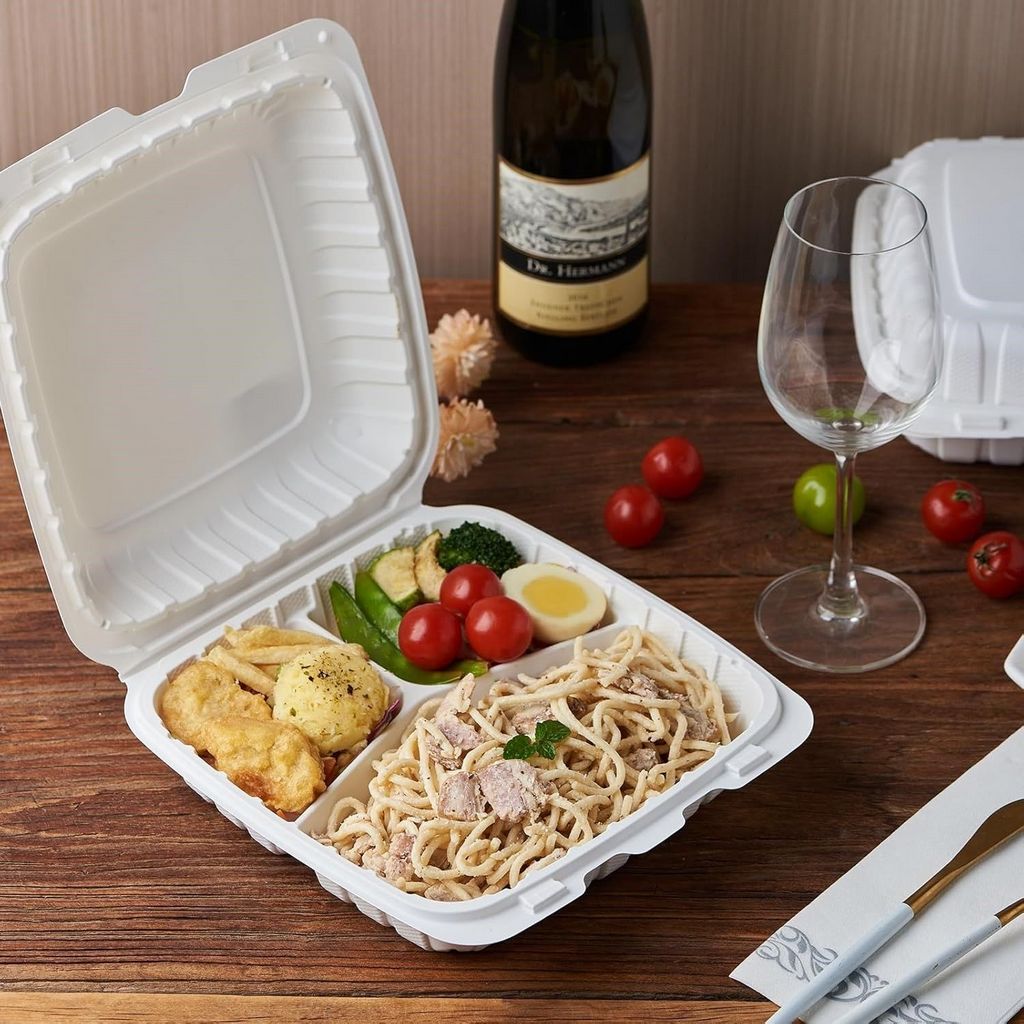Traditional plastic plates, cups, and cutlery take centuries to break down, piling up in landfills and polluting oceans. On the other hand, biodegradable options made from materials like palm leaves, sugarcane, and cornstarch break down naturally, leaving little to no waste behind.
From biodegradable plates and compostable cutlery to recyclable packaging, there are green alternatives all around. But how do food companies select the right ones? In this guide, we’ll explore how food businesses can make smarter, greener choices when it comes to their tableware; without sacrificing quality, convenience, or style.
More food brands are going green to meet demand
Increasing numbers of food companies are turning to environmentally friendly methods, and ordering heavy-duty disposable plates; it's what consumers demand. As more people become concerned with sustainability, they're hunting for greener alternatives, whether that is biodegradable packaging, compostable utensils, or sustainably sourced ingredients.
From tiny cafes to large restaurant chains, brands are replacing plastic with recyclable and compostable packaging, reducing waste, and even providing incentives for customers to bring their own containers. As consumers increasingly ask for green, food companies that make the switch are standing out.
Why traditional tableware isn’t as harmless as it seems
Plastic tableware may be convenient, but it has a secret price tag; one of the environmental feet. The majority of plastic plates, cups, and utensils take centuries to decompose, filling up landfills and fouling oceans in the process. Even paper tableware, when treated with plastic, isn't as green as it appears.
The manufacture of plastic tableware also uses up natural resources, leading to deforestation and overconsumption of energy. While plastic tableware are convenient to use for serving food, their long-term effect is far from benign.
Upgrading to planet-friendly options
Going green with zero waste products isn't only a great idea; it's also an effortless way to minimize waste while still staying fashionable and easy to use. Whether you have a food business, put on events, or simply desire to live greener at home, making the change to more sustainable products can go a long way.
1) Palm leaf plates: trendy and durable
Palm leaf plates from Plant Plate are probably the most environmentally friendly disposable tableware available. Even though they are natural, they're super tough and can withstand greasy or saucy foods.
They also possess a natural, earthy appearance which lends some sophistication to the ambience. Whether you’re serving up casual street food or a fancy catered meal, Heavy-duty disposable plates are a great sustainable swap.
2) Compostable sugarcane plates: the perfect everyday option
Sugarcane plates, or bagasse plates, are yet another great substitute for regular disposable tableware. Produced from the fibrous residue of sugarcane processing, these plates are completely compostable and naturally disintegrate without causing any harm to the environment.
They are light in weight but durable enough, so they are ideal for use in everything from fast food restaurants to outdoor picnics. As disposable lunch containers can support both hot and cold foods, they are an ideal all-purpose option for anyone wanting to reduce plastic waste.
3) Disposable lids: storing sustainability
Disposable lids for takeout and coffee cups are usually left out of the sustainability discussion. Plastic lids, in particular, are a source of pollution, but more environmentally friendly options are possible. Compostable and biodegradable lids made from resources such as cornstarch or sugarcane fiber offer a sustainable option without compromising functionality.
They are heat-resistant, durable, and naturally biodegradable, eliminating waste that ends up in landfills. Making the switch to green lids and plant-based bowl is a small but useful step that food companies can take to enhance their sustainable practices.
4) Compostable Cutlery: bidding farewell to plastic forks
Plastic knives, forks, and spoons are perhaps some of the most inefficient products in the food business, but things are changing with eco-friendly cutlery. Compostable cutlery produced from resources such as cornstarch, bamboo, and wood provides a better alternative that is not only friendly to the environment but also safe for consumption.
These alternatives are as durable as plastic and decompose much quicker, so they are a clear conscience option for consumers and businesses alike. Some compostable cutlery brands even have fashionable, biodegradable cutlery sets that feel and look high-end, giving a bit of added flair to the meal.
5) Compostable paper bowls: perfect for soups and salads
For soups, salads, or pasta, compostable paper bowls are a necessity. Unlike traditional paper bowls that often contain a plastic lining, these eco-friendly versions use plant-based coatings that are biodegradable and compostable.
Whether you’re running a food truck or just need Plant-based bowl for a party, choosing compostable paper bowls is an easy way to minimize waste while still enjoying the convenience of disposables.
The eco-friendly wave in small food businesses
Small food companies are leading the charge in a major way when it comes to going green. Whether it's replacing plastic with disposable lunch containers, employing compostable cutlery, or sourcing ingredients more sustainably, these small companies are showing that green isn't just for the large chains.
Conclusion
Customers are paying attention as well; folks love to patronize establishments that care about the environment. And with cheaper and more easily accessible zero waste products now on the market, switching over is a breeze. Whether it's minimizing waste, lowering carbon footprints, or just making more intelligent decisions, small food operations are at the forefront of sustainability, one eco-friendly step at a time.

